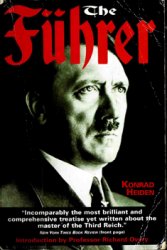After World War I, the League of Nations awarded Great Britain three mandates in the Middle East: Palestine, Transjordan, and Iraq. British officials agreed to prepare the mandates for selfgovernment, which accorded with the promises made by Lawrence. At the same time, the British began allowing the emigration of thousands of Jews to Palestine, in accordance with the Balfour Declaration. The influx of Jews angered many Palestinian Arabs, who expected to form their own nation.
Almost immediately, violence broke out between Jews and Palestinians and against the British officials in Palestine. The violence escalated during the period between the two world wars, with both sides forming paramilitary guerrilla units and carrying out acts of terrorism against each other.
After Adolf Hitler came to power in Germany in 1933, many European Jews began to emigrate to Palestine to escape the Nazi threat. The German government sent representatives to Palestine to negotiate with the Zionist leadership to facilitate Jewish emigration. This increased influx of Jews angered many Arabs in Palestine, who accelerated their violent attacks on Jews. Jewish paramilitary units such as the Irgun and the Hagganah retaliated.
In 1937 a frustrated British official concluded in a report to his home office that the only solution he could see for the Palestinian problem was to divide the mandate between Jews and Arabs, letting each group form its own nation. However, Great Britain declared two years later that such a partition would not take place.
When World War II broke out, Zionist leader Chaim Weiz-mann declared that Jews around the world would support Great
Britain, in effect declaring war on Germany. As the war progressed, Jews from all over Europe tried to flee the Nazi terror. Many of them made their way to Palestine in defiance of a British quota on the number of Jews who could enter Palestine legally. The violence between Jews and Arabs in Palestine continued throughout the war.
At the war's end, many people throughout the world felt great sympathy for the Jews because of their suffering at the hands of the Nazis. This sympathy was especially pronounced in the U. S. Congress, in part because members of the American Jewish community had made large donations to fund political campaigns.
Jewish guerrilla actions against the Arabs and the British escalated, culminating in the bombing of the King David Hotel in Jerusalem, which housed many British mandate officials. In 1948 the British gave up on trying to solve the Palestinian problem and withdrew from the area. Simultaneously, Zionist leaders proclaimed the formation of the nation of Israel. President Harry S. Truman of the United States and Soviet dictator Joseph Stalin immediately recognized the new nation and opened diplomatic relations with it.




 World History
World History









